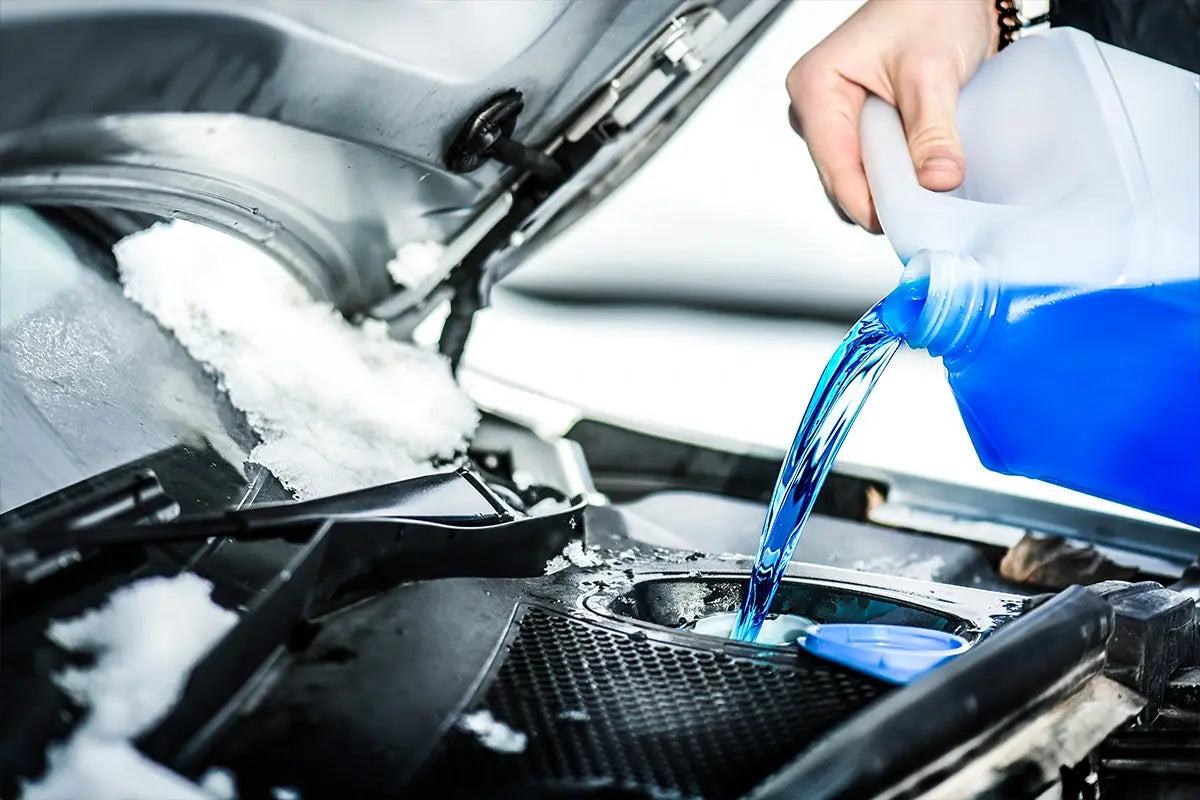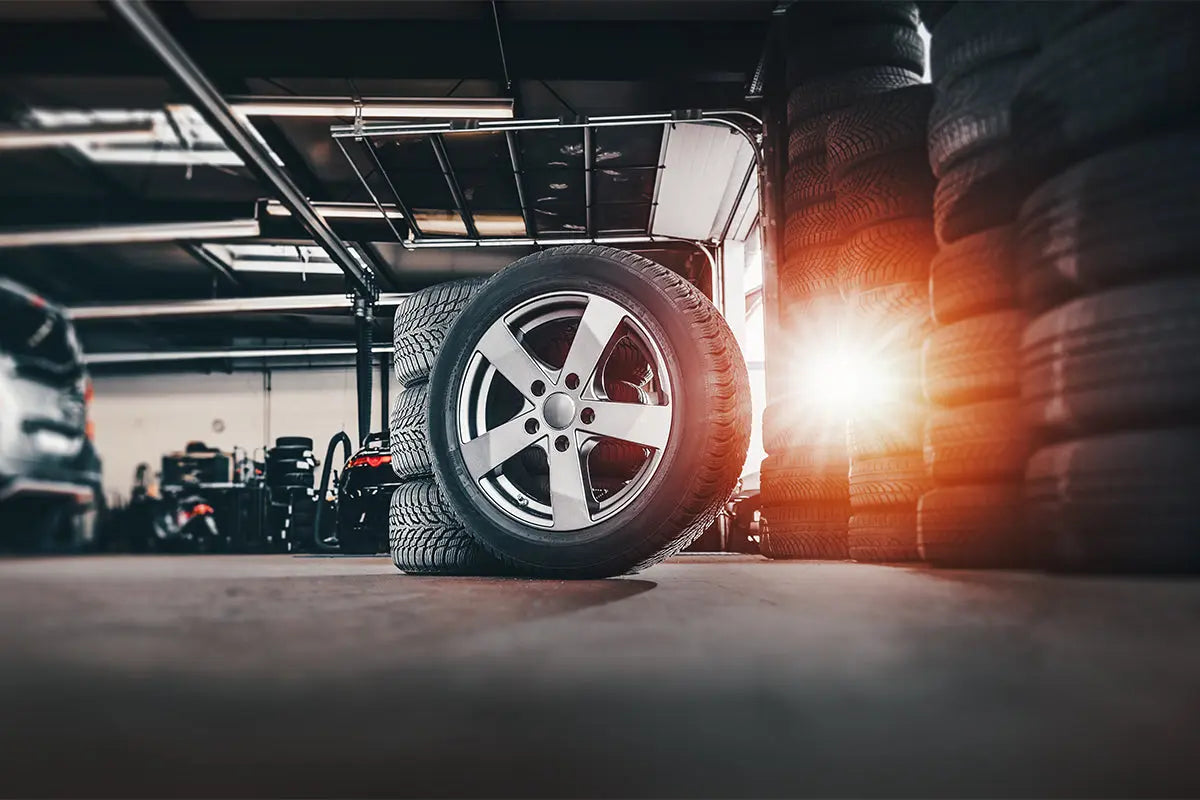
related products in shine armor:
What is an Engine Air Filter?
In order to understand why an engine air filter is important, it’s essential to know what it is. The typical modern car will have two air filters: a cabin air filter and also an engine air filter. (You should note that the cabin air filter does have to be changed from time to time, but on a different schedule than the engine air filter requires.)
The engine air filter effectively works to prevent dirt, dust, and environmental contaminants from infiltrating the engine and getting in. That being said, as time goes on, the air filter can become dirty or clogged, which means it will need to be replaced.
The way it works is by your vehicle using an intake system to draw air inside of the engine for the internal combustion process. In order to ensure dust and debris are kept outside of the motor, your engine air filter is front and center on the intake.
If your filter is kept clean and unobstructed, then you can be sure that only clean air will reach the inside of your engine. This ultimately ensures that your engine continues to run smoothly and effortlessly. If your car doesn’t have an effective air filter in place, however, there could be serious consequences. This means that your car could suffer damage or even experience a dip in efficiency because the dust particles are impeding on complete combustion.
shop by category:
- buy exterior products from shine armor
- buy interior products from shine armor
- Buy Best car detailing kit
What is the Difference Between an Engine Air Filter and Cabin Air Filter?
You’ve likely heard the term “cabin air filter” before, too, and it’s completely understandable if you’re unsure how these two filters differ. While they are fundamentally similar in some ways, they’re also extremely different in others.
While a cabin air filter does mimic the construction of the engine’s air filter, it does not have the same function by any means. The cabin air filter, by contrast, sits at the front of the heater box to treat the air that’s filtering into your passenger compartment. It’s responsible for drawing out dust, pollen, soot, and other environmental allergens.
This helps provide clean air to the cabin. It’s important to also have this filter replaced regularly because it does fill with particles that can render it ineffective. Not only does a dirty cabin air filter that needs to be replaced decrease how effective the heating and air condition system is, but allergens can also infiltrate the space more easily.
How Often Should I Change My Engine Air Filter?
As you might have guessed, how often you should change your car’s engine air filter is highly individual, but there are guidelines, similar to an oil change. Vehicle manufacturers themselves vary on their recommendations regarding how often you should do so, but it’s also important to take into consideration what your driving habits are.
Driving habits can refer to the driving conditions and climate. For example, if you usually drive on dirt roads, do lots of stop-and-start style driving, or live in a dusty, dry climate, the air filter is likely going to need to be replaced more frequently. If you’re wondering when you need to replace this important part of your car, you can simply give it a quick visual inspection.
If you want a personalized estimate regarding how often you should change this, you can consult a mechanic, but if you want a more base estimate, you should aim for somewhere between every 15,000 to 30,000 miles. In addition to this, checking in your car’s owner manual is a great start.
Signs Your Car Needs a New Air Filter
There are several things to look out for to gauge if your car requires a new filter. In addition to keeping note of how many miles you’ve driven since your last filter change, there are some other things to keep in mind. Signs that your car might need a filter refresh include:
- Overall mileage: If you’re constantly stopping at the gas station to get more gas, it might be time to consider filter problems as a cause.
- Overall power: If you’re noticing that acceleration isn’t going as smoothly or the car feels sluggish when you drive it, look into the filter.
- Dirt and debris: If anything falls out of the air filter when you take it out and lightly shake it, it’s time to remove it.
-
A noise in the engine: When your car has a dirty air filter, it allows debris into the spark plugs, which causes engine noise and misfiring.
- Exhaust: There might be the presence of dark smog that emits from the car’s exhaust as a result.
- A mechanic tells you to: If you bring your car into the shop for something else and the mechanic recommends a switch, you should heed their advice.
How Can I Evaluate My Car’s Engine Air Filter?
It might seem intimidating to consider evaluating your car’s engine air filter, but it’s something rather simple that anyone can complete. Once you know what you’re looking for, you’ll be good to go.
The first thing to do is to check inside of the vehicle’s owner manual for the air filter’s location. It’s usually kept inside of a cover that’s easily opened by simply removing clips or snaps. Once you’ve popped the cover off, you can lift the air filter up and out. The next thing to do is hold it up to a light source.
When you’re looking at the air filter in the light, if it appears to be clean, white, or even just a little dirty, it can go without a replacement. If there’s a thin layer of dirt that’s tarnishing the air filter, it’s possible to gently clean it and continue using it. You can do this by simply tapping it to release the loose dirt that’s trapped. Finally, if the air filter is caked with a thick layer of dirt, changing it will do the trick.
Why is it Important?
Changing your engine’s air filter isn’t just important, it can best be considered crucial. Without a clean air filter, your car simply won’t perform as it could or should. Delaying a change can ultimately lead to issues with your engine.
You might notice a decrease in gas mileage if there’s an issue with the air filter. If you’re taking plenty of trips to the gas station to refill your tank, consider that this might be the culprit. In addition, reducing the airflow can result in a fouled spark plug. What does that mean? A higher likelihood that engine misses, rough idling, and starting problems will pop up.
In Summation
Your car’s engine is responsible for the proper functioning of the car, so taking good care of it is of paramount importance. One way that you can do that and contribute to your car’s overall health is by changing your vehicle’s engine air filter in a timely manner.
An engine air filter has a variety of jobs, but the most important one is arguably working to ensure that your car’s engine is getting clean air without contaminants. This clean air is crucial to the combustion process. But it’s more than just that; this air filter prevents any potential airborne contaminants from making their way into the car’s engine. These contaminants could be potentially damaging, so it’s important to ensure they don’t make their way in.
If you’re unsure about when the right time to change your engine air filter is, never fear! There are a few ways to check this out. The first is to jot down a note to check it out and likely change it every 15,000 to 30,000 miles.
It’s important to avoid waiting to change your engine’s air filter because if you do, a whole host of problems can arise. Minimize the likelihood that they will be taking a proactive approach.
You’ve probably heard of a “cabin air filter” before, and while there are some similarities between the engine air filter and the cabin air filter, they are different and it’s important to not get these mixed up. While the cabin air filter does mimic the engine’s air filter structurally, there’s a huge disparity when it comes to functions.
Sources:
https://www.cars.com/articles/how-often-should-you-change-the-engine-air-filter-1420663059324/






